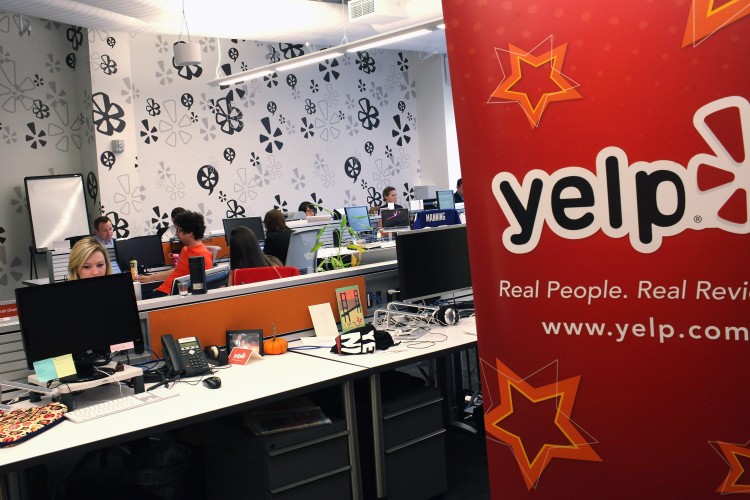
You mean a site where people give their opinions about restaurants is worth billions? Sure, sounds good to me.
This article appears in drastically different form on Investopedia.
“IPOs for beginners”. As a concept, that’s similar to “International Space Station repair for beginners.” No less an authority than Benjamin Graham, author of the definitive investing guide The Intelligent Investor and mentor of Warren Buffett, believed that initial public offerings were way beyond the neophyte investor’s level. He was largely right, but why?
Who wouldn’t want to be among the first to enjoy a promising new stock, one that no one else at the cocktail party had the privilege of investing in as early as you did? IPOs are tempting, if you’re the kind of person who loves shiny new toys and the general feeling of exclusivity that accompanies them. But at least you can physically show off your iPad 3 or PlayStation Vita and receive tangible oohs and aahs. That’s considerably different than telling everyone you meet that you hopped aboard the Groupon bandwagon when the rest of the world was still showing their IDs at the ticket counter. There’s little that’s conspicuous about a particular new entry in an online brokerage account.
Graham thought IPOs were only for seasoned investors for several reasons, one of them being that the previous private owners are often looking to cash out much of their holdings. The underwriters set the price of the typical IPO at a premium specifically to take advantage of a seller’s market. With limited supply, and highly publicized if not unlimited demand, what would you expect to happen to the price of a stock when it’s first offered to the public? (It’s a rhetorical question, and if you really need the answer, you shouldn’t even be considering investing in an IPO.)
Graham died a quarter-century before the original dot-com bust, and everything that’s happened since would only reinforce his position regarding who should invest in an IPO. Almost by definition, most initial public offerings are of companies that haven’t been around a long time. Lately, the companies haven’t even needed healthy records of revenue growth and profit, either. But with a proliferation of aggressive venture capital firms looking to back winners, and the financial media having ever more reach among amateurs looking for an exciting place to put their money, one thing is certain: the next Pets.com or eToys won’t be hurting for investors on its opening trading day.
Last November, Groupon “finally” went public after endless rumors. (“Finally” is in quotes because while most of Groupon’s existence as a private company was spent anticipating the IPO, that existence was only three years. The company was founded in November of 2008.) The company was on top of the collective consciousness as the hottest of all possible IPOs, at least until the day that Facebook goes public. Groupon acknowledged in SEC documents that it was on pace to lose half a billion dollars a year, and investors still kept coming. Once the institutional investors got paid, and GRPN finally became available to the ordinary public, the stock had fallen from its introductory price. A scant 4 months later, Groupon stock has lost almost a third of its value, which is fairly impressive seeing as earnings are about a negative dollar per share. Groupon’s never reached its IPO level after a couple of weeks of trading, and might never again.
Of course, all IPOs aren’t Groupon. VISA went public after decades of renown and profit, but even its IPO wasn’t available to anyone but institutional investors at the start. The same will go for Facebook. The company’s primary stockholders will profit the most – the very day it goes public, in fact. The initial lenders will get on their knees and thank the God of their parents’ choice. After a few more iterations, the most anticipated stock in recent history will trickle down to average investors at a price that could be a bargain, or could be a local maximum. There are more prudent ways to invest.
Take an example of a company whose stock is about as far removed from an IPO as possible – United Technologies. The Hartford-based aircraft engine and elevator conglomerate has been a component of the Dow since before World War II, and probably hasn’t been above the fold in any story in The Wall Street Journal since then. Most people have never heard of United Technologies, and the company brass prefers it that way, thank you very much. Nothing, not even a fire alarm, will clear out a room faster than telling people you recently went long on UTX stock. But an interesting thing about United Technologies’ performance is that you can examine its price movement over almost any arbitrary period, and the graph will consistently move up and to the right.
Investing should have one solitary, overarching objective – to make money. Getting excited about an IPO for its own sake isn’t investing so much as it is flamboyance. The people who got in on Google’s ground floor, you can count on both hands. It’s tempting to think that you could have been one of them, or that you could be in a similar position when the next IPO comes available, but building wealth doesn’t have to be that capricious. Find an established, undervalued, temporarily wounded stock, and you’re far more likely to turn a long-term profit than someone starry-eyed over the latest company to be listed publicly.
This article is featured in:
**The Carnival of Personal Finance-Invest in Yourself Edition (Editor’s pick)**




